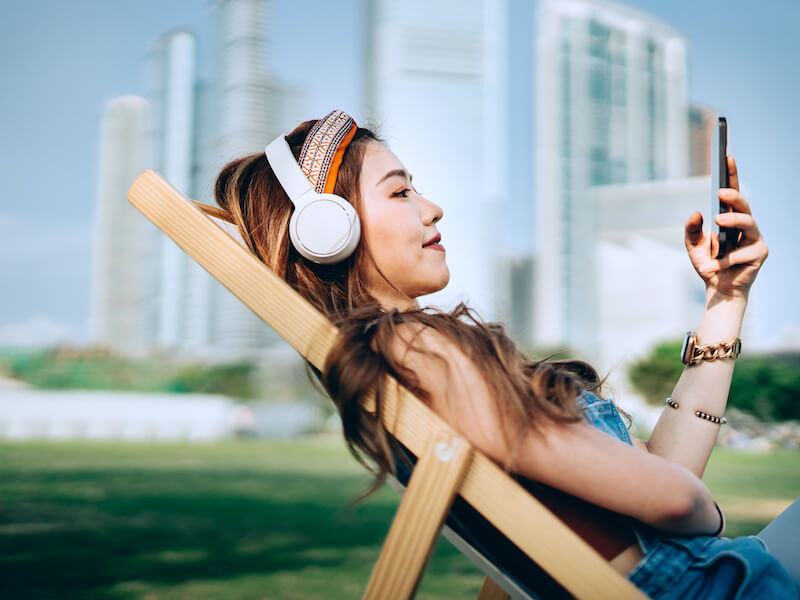
Music is a major part of Aiden’s life. He listens to Spotify while at work, switches to Pandora when jogging, and he has a playlist for everything: cardio, cooking, gaming, you name it. His entire life has a soundtrack and it’s playing on his headphones. But irreversible hearing damage might be happening due to the very loud immersive music he enjoys.
For your ears, there are safe ways to listen to music and hazardous ways to listen to music. Unfortunately, most of us choose the more hazardous listening choice.
How can hearing loss be the result of listening to music?
Over time, loud noises can lead to degeneration of your hearing abilities. We’re accustomed to thinking of hearing loss as an issue related to aging, but more and more research indicates that it’s actually the accumulation of noise-induced damage that is the issue here and not anything intrinsic to the aging process.
Younger ears that are still growing are, as it turns out, more susceptible to noise-induced damage. And yet, the long-term damage from high volume is more likely to be disregarded by younger adults. So there’s an epidemic of younger individuals with hearing loss thanks, in part, to loud headphone use.
Can you listen to music safely?
Unlimited max volume is obviously the “dangerous” way to enjoy music. But simply turning down the volume is a less dangerous way to listen. Here are a couple of general recommendations:
- For adults: Keep the volume at less than 80dB and for no more than 40 hours per week.
- For teens and young children: 40 hours is still fine but lower the volume to 75dB.
Forty hours per week translates into roughly five hours and forty minutes a day. That may seem like a lot, but it can go by rather rapidly. Even still, most individuals have a fairly sound concept of keeping track of time, it’s something we’re taught to do efficiently from a really young age.
The harder part is keeping track of your volume. On most smart devices, computers, and TVs, volume is not calculated in decibels. It’s calculated on some arbitrary scale. It might be 1-100. Or it could be 1-10. You might not have a clue how close to max volume you are or even what max volume on your device is.
How can you listen to music while keeping track of your volume?
There are some non-intrusive, simple ways to figure out just how loud the volume on your music really is, because it’s not very easy for us to conceptualize what 80dB sounds like. It’s even harder to understand the difference between 80 and 75dB.
So utilizing one of the many noise free monitoring apps is greatly advisable. Real-time volumes of the noise around you will be available from both iPhone and Android apps. In this way, you can make real-time alterations while monitoring your actual dB level. Or, when listening to music, you can also adjust your settings in your smartphone which will efficiently let you know that your volume is too high.
As loud as a garbage disposal
Generally, 80 dB is about as noisy as your garbage disposal or your dishwasher. So, it’s loud, but it’s not too loud. Your ears will begin to take damage at volumes above this threshold so it’s a significant observation.
So pay close attention and try to stay away from noise above this volume. If you happen to listen to some music above 80dB, remember to limit your exposure. Maybe listen to your favorite song at full volume instead of the entire album.
Listening to music at a higher volume can and will cause you to have hearing problems over the long term. Hearing loss and tinnitus can be the consequence. The more you can be aware of when your ears are going into the danger zone, the more educated your decision-making can be. And safer listening will ideally be part of those decisions.
Give us a call if you still have questions about keeping your ears safe.